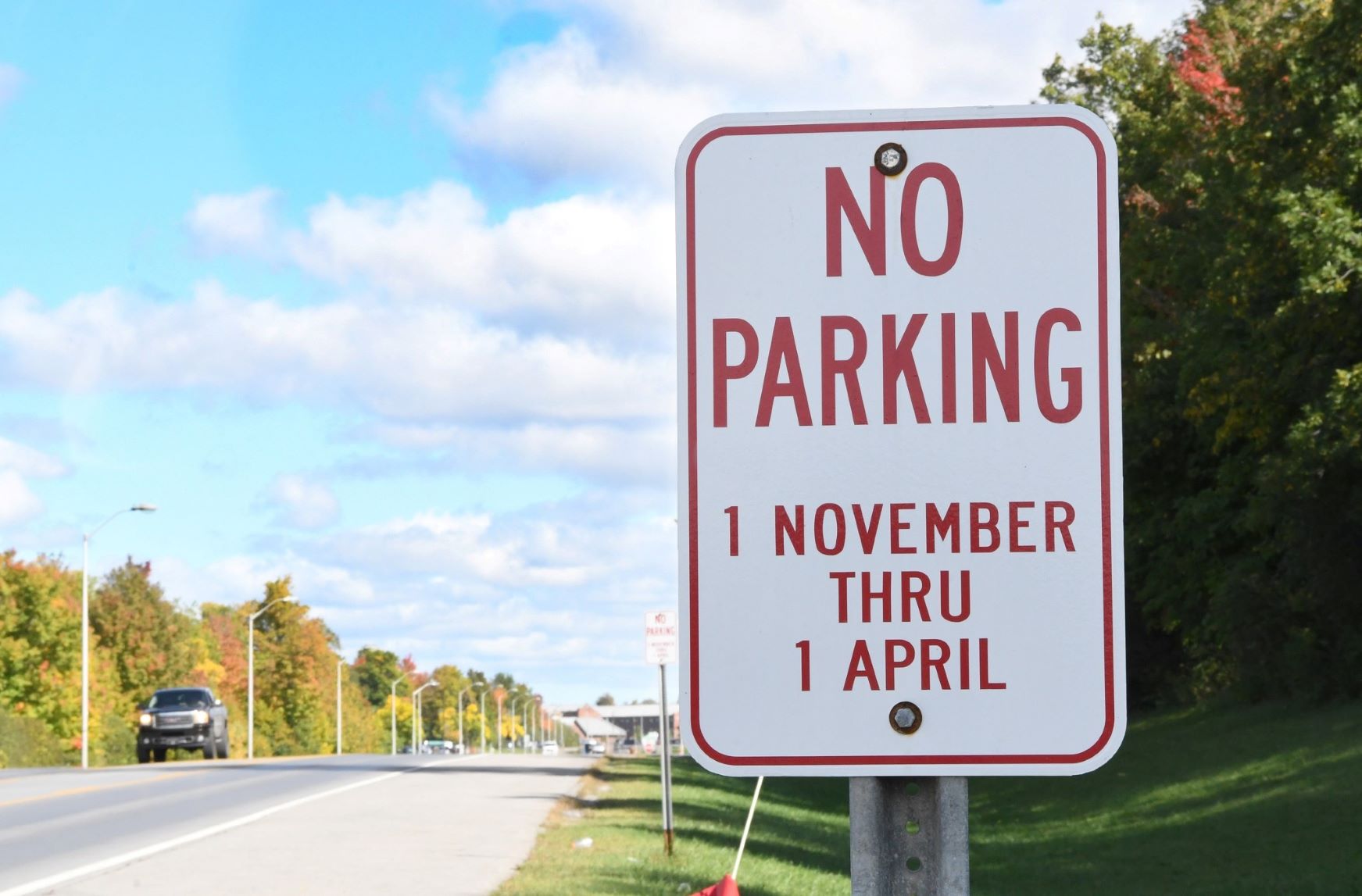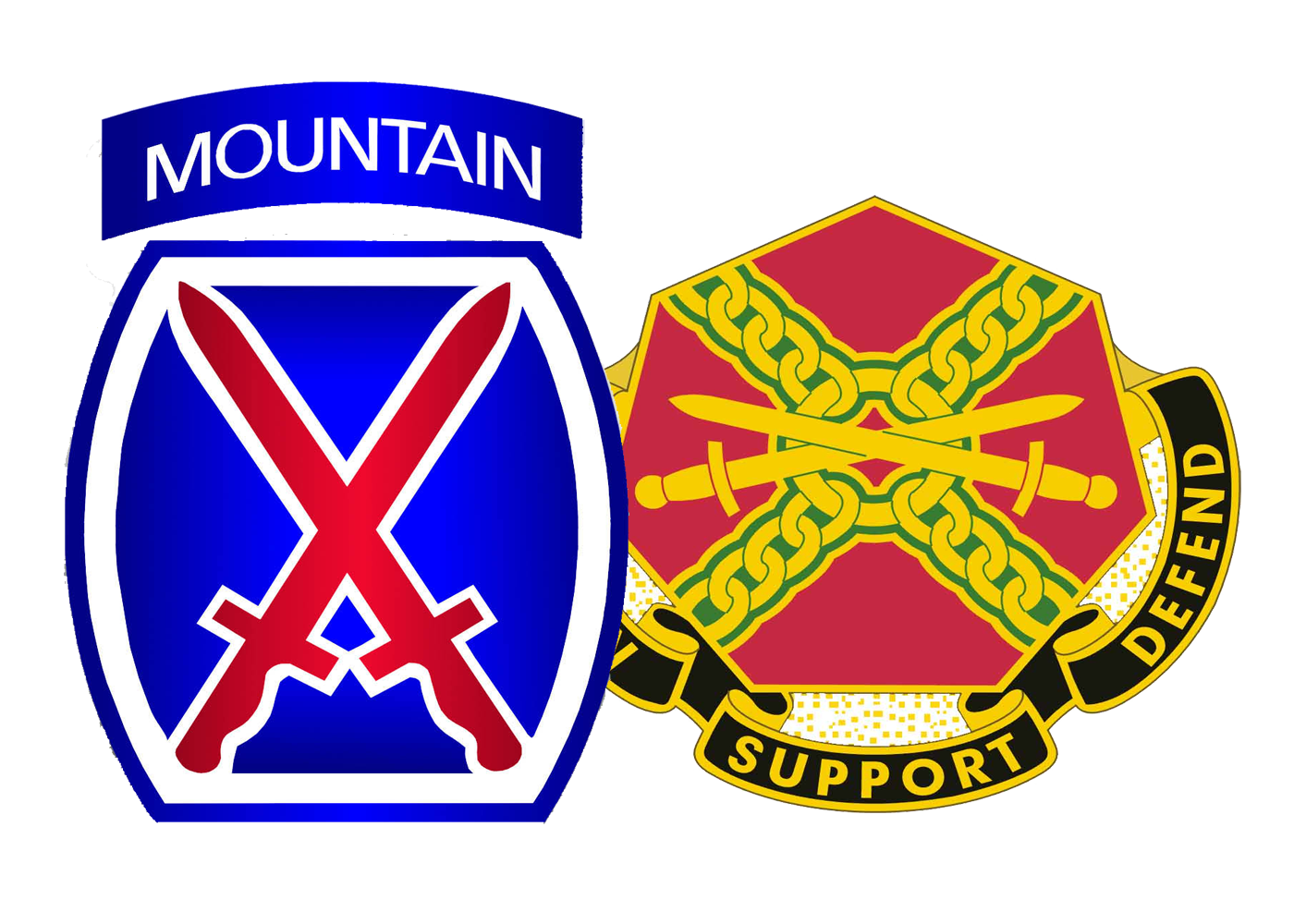
Signs on North Riva Ridge Loop remind motorists of the winter parking restriction starting Nov. 1 on all Fort Drum roadways. (Photo by Mike Strasser, Fort Drum Garrison Public Affairs)
Officials offer tips on preparing
for next North Country winter
Mike Strasser
Fort Drum Garrison Public Affairs
FORT DRUM, N.Y. (Oct. 6, 2021) – Although the fall season just began, Fort Drum officials emphasized winter preparedness Oct. 6 at the Community Information Exchange meeting and offered safety tips for the months ahead.
Capt. Morgan Cady, Directorate of Emergency Services deputy chief of operations, reminded community members that the winter parking ban goes into effect Nov. 1 through April 1 on all Fort Drum roadways.
Vehicles in violation of Fort Drum Regulation 190-5 during this period will be ticketed, and possibly towed, if they impede snow removal operations.
“I’d say on average we usually issue about 100 citations during the first month,” Cady said. “If a vehicle is impeding snow removal, the MPs will try if they can to find the owner of that vehicle to get it moved. However, if they can’t, those vehicles are going to get towed, because getting the snow off the roadways is the No. 1 priority.”
Cady also discussed the main causes of vehicular accidents during the winter. While heavy snowfall and icy roads are major factors, inexperienced or overconfident drivers also contribute to the increase in seasonal accidents.
Other causes include speeding, following too closely behind another vehicle (increased stopping distance is required on slippery roads) and failing to clear ice and snow from the vehicle before driving (reduced visibility).
During fiscal years 2019 and 2020, Fort Drum averaged between 500 and 700 winter driving accidents.
“The No. 1 thing we are going to tell you is to slow down,” Cady said. “My grandfather would always say that you re-learn how to drive every single winter.”
Winter preparedness means having a basic survival kit inside the vehicle in case of roadside emergencies. This should include extra clothing, a blanket, road flares and water. Motorists should always have more than a half tank of gas when driving.
With this being Fire Prevention Week, Fort Drum Fire Inspector Kevin Hazen spoke about fall and winter fire safety.
“On Fort Drum, there is a no open-flame policy,” he said. “With that, you are not allowed to burn leaves, but you have options. You can mulch the leaves with your lawn mower, or you can bag them and leave them curbside for someone to pick up.”
Hazen said that residents should check to see if their smoke and carbon monoxide detectors are functioning, and they should replace the batteries if needed.
“As always, you should be testing your alarms monthly,” he said. “There’s usually a little test switch on them. Find it, push it and make sure it activates. Early detection of an incident offers the greatest chance for you to get out.”
When temperatures get cold, space heaters often are used to help warm up homes and offices.
“Space heaters are allowed on Fort Drum, but they are required to have a tip-over protection feature,” Hazen said. “If knocked over, that feature cuts the heating element immediately and cools the space heater so it doesn’t ignite something.”
Hazen advises keeping at least a three-foot space around the heater and keeping it unplugged when not in use.
If a family has a home emergency in the winter, Hazen said that the ability to exit the house safely is crucial. Keeping paths clear of snow, ice or other debris ensures this is possible. This same is true for all facilities on post.
“At any given point of time, if there is an emergency in your home or business, you want to be able to get out,” he said. “If you go by each of the CYS (Child and Youth Services) centers, you’ll see textbook examples here on the installation. There are crews that come in as early as 3 in the morning, and they have every single exit of those facilities cleared before people start coming in.”
For more fire prevention and safety tips, visit www.nfpa.org.
The discussion of winter weather will continue during the next CIE meeting, Nov. 3, when officials will brief the community on include weather call procedures and how senior leaders determine duty status during inclement weather days.





